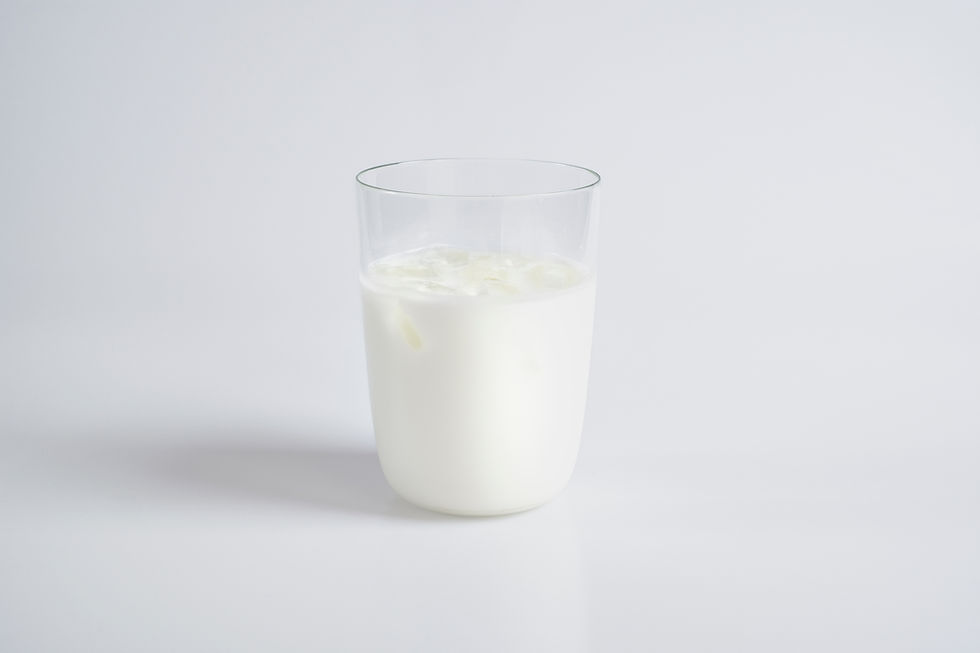Endometriosis & Camel Milk
- Bec Issell
- Jul 14, 2022
- 3 min read
Updated: Oct 21, 2024
Did you know camel milk is an ancient "superfood" used throughout the middle eastern countries for thousands of years for its exceptional benefits? Let's talk about camel milk...because you've probably never been told about how it could improve your overall health, especially if you have endometriosis and dairy intolerance or allergy.
Why Camel Milk? Won't It Taste Bad?
Camel milk is a nutrient dense cow dairy alternate that contains immune modulating nutrients that help fight disease, while modulating the immune system. Camel milk from Australia tastes mild and sweet like a skinny cow dairy (but better in my opinion!) I have tried both Q-Camel and Summerland Camels, both are lovely, but I personally prefer Summerland Camel Milk.

Medicinal Properties of Camel Milk
Camel milk holds many medicinal properties due to its high levels of lactoferrin, lysozyme, immunoglobulins and lactoperoxidase which yield antibacterial, antifungal, antiviral, immunomodulatory, antitumor and anti-inflammatory benefits. These compounds can also suppress both gram-positive and negative bacteria, which tend to be higher in the peritoneal cavity in those with endometriosis.
The above compounds and insulin-like proteins are in the process of being researched for a number of conditions including diabetes, autoimmunity, hepatitis B & C, cancer, gastric ulcers, rotavirus, and many other conditions.
Camel Milk is High in Nutrients
Camel milk is like an ancient "super food" due to it's vast nutrient profile, so much so that it closely resembles human breast milk. It contains vitamins A, B, C, D & E, calcium, electrolytes, unsaturated fatty acids; meanwhile yields 10x more iron than cow dairy, plus higher levels of zinc, copper, and manganese.
Camel milk my also improve the gut flora, since its consumption helps to develop a higher abundance of Allobaculum, Akkermansia, and Bifidobacterium.
A Cow Dairy Alternative
Camel milk does not contain β-lactoglobulin, a protein found in cow dairy that can trigger allergic reactions. Camel’s milk has more β-casein, a more digestible protein than α-casein as seen with cow dairy.
The β-casein is less likely to trigger dairy allergy due to the susceptibility of peptic hydrolysis in the gut.
The main whey protein of camel's milk is α-lactalbumin, which is also easier to digest and holds a greater antioxidant capability than α-lactalbumin from cow's dairy.
Camel milk is also less problematic than cow dairy in relation to lactose levels, since camel milk has higher L-lactate content as opposed to D-lactate, decreasing milk allergenicity.

Image Source: https://doi.org/10.1016/j.sjbs.2021.02.057
My Thoughts on Camel Milk for Endometriosis
A great tasting cow dairy alternate for those with allergy or intolerance
May yield benefits in addressing pathogenic drivers of endometriosis inflammation
May help to replenish important nutrients
May help to restore some species of beneficial microflora, important for endometriosis and many conditions
Provides good unsaturated fatty acids for inflammation
Far more sustainably sourced than cow dairy (hence the price $)
If you are struggling to give up cow dairy, looking for a milk that has overall health benefits, then camel milk might be a great tasty option for you! It comes in powdered form also, which is very palatable and lasts a year or more. Meanwhile the fresh milk must be consumed in 3-4 days.
While there's yet to be research conducted on endometriosis and camel's milk, theoretically it would be beneficial since it contains immunoglobulins and lactoferrin and Lysozymes to fight infections that contribute to endo inflammation.
Have you tried camels milk? Love to hear your thoughts.
Bec 💛
Important Note: If you have a history of anaphylactic reactions to cow dairy, please see your primary health care provider prior to trialling camel's milk, and start exposure topically with the skin rather than ingestion.
References

Comments